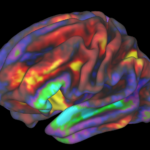Nearly 1/3 of migrants traveling through Mexico to the US experience some form of physical, psychological, or sexual violence during their transit, according to a study released in PLOS One.
“Throughout the world, traditional migration routes have turned into high-risk corridors with alarming consequences for the safety, integrity and health of migrants,” the study says.
“In an effort to understand the vulnerability of migrants, various studies have explored related socioeconomic factors, political issues and migration policies in both countries of origin and destination.”
For a comprehensive understanding as to the vulnerability of migrants, a team of researchers from the National Autonomous University of Mexico and the National Institute of Public Health in Mexico carried out a survey of 12,023 migrants in transit through Mexico to the US. The study, initiated between 2009 to 2015, obtained participants from a Mexican shelter known as Casa de migrante, to ensure a higher level of participant safety.
In the survey, researchers gathered information on any form of violence experienced through their transit, along with data on gender, health status, migratory background, and nationality. Among 58 of those migrants, the team conducted in-depth interviews and descriptive analysis of their responses.
Based on the findings, 30 percent of migrants reported some form of violence during their transit; 24 percent of migrants say they experienced physical violence; 19 percent experienced psychological violence; and nearly 2 percent experienced sexual violence.
Among the migrants subjected to the greatest amount of overall violence were those who identified themselves as transgender or transsexual. Women experienced more sexual violence compared to men. Migrants transiting from Central American countries reported more violence than Mexican migrants, researchers say.
“Violence occurred more frequently among migrants from Central American (30.6%) and other countries (40.0%) than it did among Mexican migrants (20.5%),” the findings showed.
“Experiences involving sexual, physical and psychological violence as well as theft and even kidnapping were described by interviewees. Migrants mistrust the police, migration authorities, and armed forces, and therefore commonly refrain from revealing their experiences.”
The findings conclude that a considerable amount of migrants transiting through Mexico to the US are subjected to a high level of violence due to the vulnerable conditions they face during their journey.
“The results of this paper show that violence is one of the main risks for migrants during their transit through Mexico due to the highly vulnerable conditions they face.”
“Protective measures regarding access to health care and legal services are urgently needed to ensure the human rights of these populations.”


